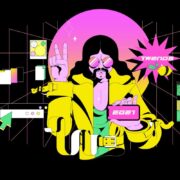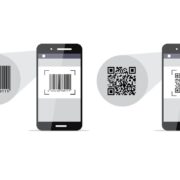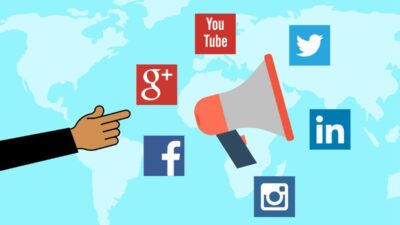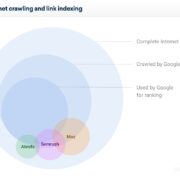In recent years, the creator economy and social media have created an enormously relevant sphere for entertainment and commerce. The metaverse could now give creators and brands, but also advertisers, even more room to develop – and to increase sales.
The world we live in is changing almost daily due to ongoing digitalization. Online shopping and social media have increasingly lured us to our smartphone screens in recent years; artificial intelligence (AI) enriches and threatens our human life in equal measure. Now a whole universe is opening up that is our natural and digital life once again could rotate 180 degrees: the metaverse.
The metaverse is a virtual parallel world that the internet is currently talking about, and it should become a creative place for people to consume content and create it themselves. Facebook founder Mark Zuckerberg, who recently renamed his tech empire Meta, speaks of one in Founder’s Letter 2021.
The Metaverse: What will be the virtual parallel world tomorrow look like?
The metaverse is still a big dream: everything is possible, nothing concrete. That’s precisely why it’s so exciting at the moment. We can help shape Web 3.0 ourselves because it is open and almost limitless.
One thing is already certain: The Metaverse is to become a virtually accessible Internet in which everyone gets an avatar – or in other words – a digital twin. With this avatar, we should then be able to move on different platforms connected. Whether playing together, doing sports, shopping or working – everything should be possible in the same virtual space.
We should gain access through technology such as VR glasses. However, the metaverse should also be open to computers and smartphones so that anyone with a digital device can enter the virtual world.
Zuckerberg even wants to have created 10,000 jobs for the Metaverse in Europe alone in five years. His plans show that the virtual world has immense potential for economic growth – not only for technologies such as virtual reality (VR), blockchain, and non-fungible tokens (NFT) but above all for the so-called creator economy as an economic sector worth billions.
The creator economy as a dream industry for Generation Z
The creator economy comprises independent creative people creating digital content and building businesses on their own. They create images, videos, blog posts, digital goods like e-books and webinars and distribute them online. Often, a creator can run their business alone or with just a few employees because technology helps them master sales, marketing, and customer service.
A joint YouGov study by our two companies, Fanbase and Loudly, found that 28 percent of Generation Z (Gen Z) are already full-time content creators or would like to become one in the future. For almost 20 percent of 18 to 26-year-olds, being a content creator is a dream job.
The Creator Economy is an investment in the future.
Gen Z content creators are already generating millions in sales in Germany. In the next few years, the creator economy will mature into a billion-dollar business – and the metaverse will play a significant role in this development.
Because the creator economy is already almost as big as the most critical industry in Germany, the automotive sector with around 809,000 employees. Six percent of Gen Z currently earn their living as content creators, equivalent to approximately 500,000 young people. In addition, almost one in four (22 percent) also wants to join in the future, that is around 1.75 million additional people. Young creative people need to realize themselves. They create content not only because they enjoy it (60 percent) but also because they use their reach, inspire other people, and change the world (21 percent).
To achieve professional fulfillment, partnerships with brands and companies are also becoming attractive for Generation Z. This is where the metaverse comes into play.
The Metaverse and the Creator Economy: A Win-Win-Win
The creator economy will benefit from the new possibilities of the metaverse – and the virtual parallel world in turn from the creators who use it and fill it with life. They will create their own virtual “spaces” in which their communities can reside and connect directly with their favorite creators.
The metaverse could become a place where regular meetings are possible and, for example, the sale and trading of merchandise products and other commercial goods.
A fanbase creator, for example, is Louisa Stroh. She has turned her art into her content and successfully presented it on TikTok and Instagram. However, the metaverse will offer her completely new possibilities such as virtual vernissages, art auctions, or workshops.
Cooperation with brands and companies is expected to play a significant role and take influencer marketing to a new level. Because the metaverse also creates virtual goods such as avatar fashion, design pieces for digital spaces, and much more. The metaverse will create a whole new marketplace for the creator economy to grow.
So basically, it will be a win-win-win situation: Creator, community, and Metaverse themselves win when they cooperate. All three parties are interdependent. Creators are only successful if they reach a large enough audience and find a way to monetize their content. The community only uses a platform if it recognizes added value from a creator or a brand. And the metaverse itself can only exist if it keeps creators and community on the forum.
Creators are gaining power.
A great benefit awaits content creators: They will have much closer contact with their community and will be able to involve their followers more closely by organizing joint meetings and activities. The metaverse blurs the boundaries of the participants. For example, food creators could host virtual cooking events and offer digital fitness courses to sports influencers.
The metaverse is about much more than new advertising and sales opportunities. The immersive, virtual world could transform everything from how we consume to work. Brands are exploring new ways of presenting their content, and NFTs can play a crucial role in the metaverse through their exclusive nature. The metaverse offers completely new possibilities such as virtual vernissages, auctions, virtual space art actions, or art workshops. The avatars interact with each other – a kind of mutual exchange that sets the metaverse apart from social networks.






















Comments